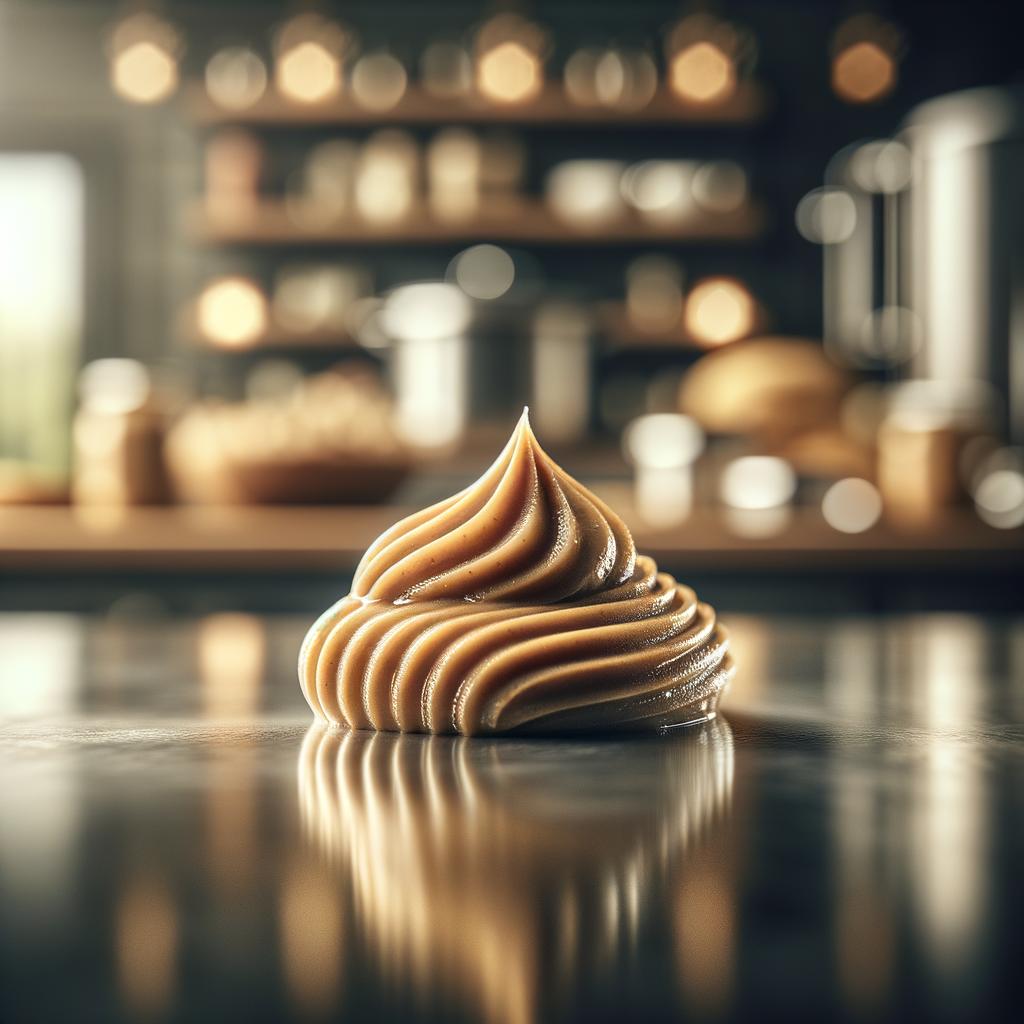Peanut Butter

Description Peanut butter, a delightful and versatile staple in many kitchens, is a smooth and creamy spread made primarily from ground dry roasted peanuts. This luscious spread exhibits a rich, earthy hue of light brown, often with an inviting glossy sheen. The texture is a satisfying blend of creamy and thick, with a consistency that can either be smooth or crunchy, depending on the presence of peanut pieces. Peanut butter's flavor profile is an irresistible combination of sweet, salty, and nutty, with a hint of roastiness that makes it a comfort food for many. What sets peanut butter apart from other nut butters is its distinctively robust and hearty flavor, coupled with its ability to blend seamlessly with both sweet and savory ingredients.
Primary Uses Peanut butter is a culinary chameleon, used widely in a variety of dishes across different cuisines. It's a key component in classic American sandwiches, most notably the beloved peanut butter and jelly. In Asian cuisines, it's often used to create rich, savory sauces for dishes like satay and cold noodles. It's also a popular ingredient in baking, lending its unique flavor to cookies, brownies, and cakes. Beyond its culinary uses, peanut butter is also used as a nutritious treat for pets, and in some cultures, it's used as a symbolic food in certain rituals and ceremonies.
History The origins of peanut butter trace back to ancient times, with the Aztecs and Incas believed to be the first to grind peanuts into a paste. However, it wasn't until the late 19th century that peanut butter was modernized and popularized in the United States, initially as a nutritious protein substitute for people with poor teeth. Over time, peanut butter has evolved from a luxury item to a household staple, enjoyed by people of all ages. There's even a charming folklore that associates peanut butter with the invention of the sliced bread, as they both revolutionized the way we eat sandwiches!
Nutritional Information Peanut butter is not just delicious, but also packed with nutritional benefits. It's a good source of protein, dietary fiber, and healthy monounsaturated fats. It also contains essential vitamins and minerals like vitamin E, B6, niacin, calcium, and iron. Despite its high-calorie content, peanut butter can be part of a healthy diet when consumed in moderation due to its ability to provide satiety. Compared to other nut butters, peanut butter tends to be less expensive while still offering a comparable nutritional profile, making it a valuable addition to any pantry.

